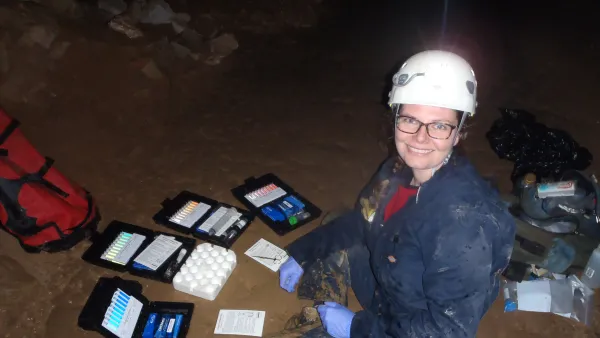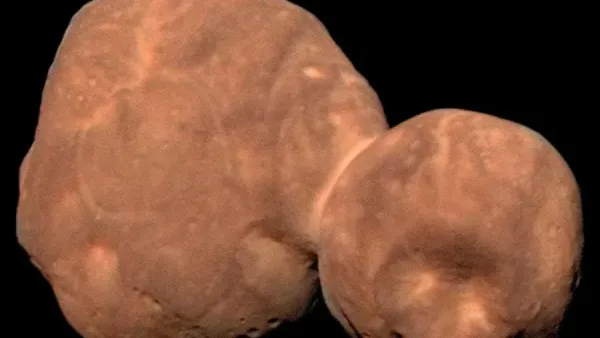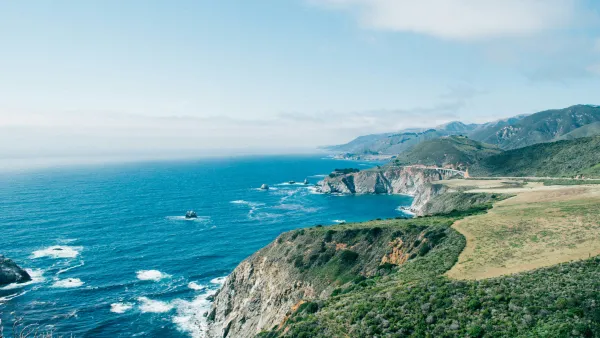Alumna Maggie Osburn shares her love of geoscience field work: "The combination of field and lab work, but especially field experience, is what makes the geosciences really special.”
Magdalena “Maggie” Osburn, AB 2007, has been going to the field since she was a little girl. Now, Osburn shares the joys of field geobiology—complete with traveling to remote sites and exploring extreme environments—with her students as an assistant professor in the Department of Earth and Planetary Sciences at Northwestern University.
That love of the field runs in Osburn’s family. Her father is Bob Osburn, the department’s laboratory administrator and a renowned expert in geological mapping. “My dad started working in Earth and planetary sciences at WashU 32 years ago, so I really grew up around the department,” she said. “Coming back for undergrad was like coming home.”
Beyond her experience in the Department of Earth and Planetary Sciences, Osburn pushed herself to gain complementary expertise in other sciences. “I spent about two weeks thinking I was going to be a chemistry major,” Osburn recalled. “Both my parents had master’s degrees in geology, so they encouraged me to try something a little more practical.” Osburn ultimately settled on geochemistry as her primary area of study with a double major in environmental studies.
When asked what led her to choose geology, Osburn’s response was quick and sure: “Hands down, it’s the field work. I had been going to Yellowstone every summer since I was 14 with Everett Shock’s group. My dad also took me out as a field assistant a couple of times. I was able to do real geological mapping and then combine that with cool lab methodologies. The combination of field and lab work, but especially field experience, is what makes the geosciences really special.”
WashU’s Department of Earth and Planetary Sciences has influenced many defining aspects of Osburn’s life. She met her doctoral advisors when they visited for seminars; she rejoined her undergraduate advisor, Jan Amend, for a postdoc after completing her doctorate; and she met the people who would eventually be her faculty colleagues at a conference mixer co-hosted by Northwestern and WashU when she was just a junior. Osburn even met her husband, Mitchell Barklage, PhD 2010, while they were both students at WashU.
As a Packard Fellow and a fellow of the Canadian Institute of Advanced Research, Osburn’s current work in geobiology draws on her early research experience. “I still dabble in the hot springs at Yellowstone, but my own research now is more focused on life-earth interactions, particularly in what humans consider to be extreme environments,” Osburn said. She is best known for her work on deep subsurface environments, studying microbes that live deep underground. Lately, she’s been working on cave microbiology, another callback to her early experience in the field with her father, studying many of the same questions in caves as in hot springs or the deep subsurface. Up next, Osburn is sampling a hypersaline site, where chemistry on Earth mimics chemistry on Mars with possible astrobiological implications.
As a professor at Northwestern, Osburn especially strives to make undergraduates’ experiences as robust as hers were. She cites “the vastness of what we don’t understand about what microbes are doing on Earth” as a driving force behind her work in the field and the research experiences she shares with her students.



